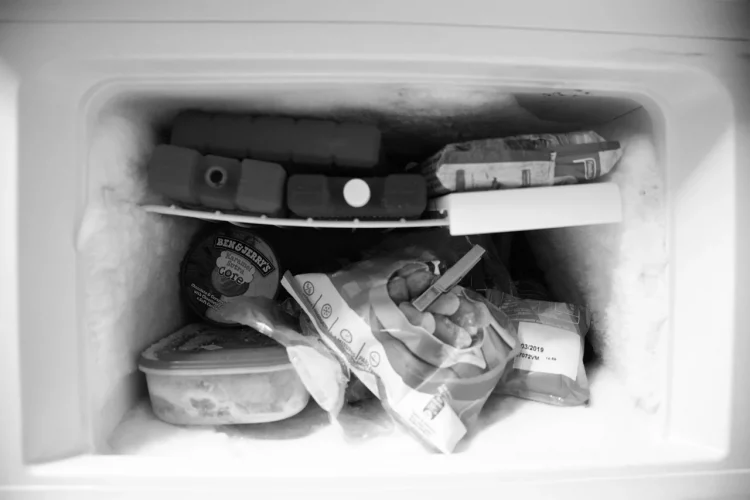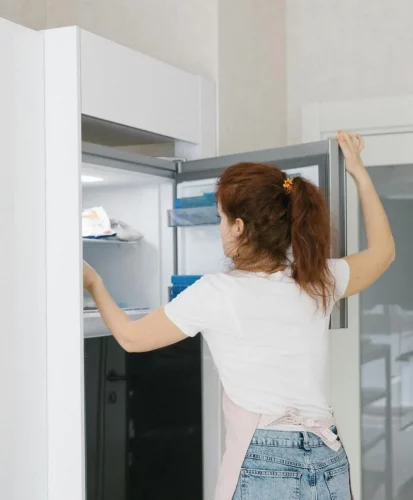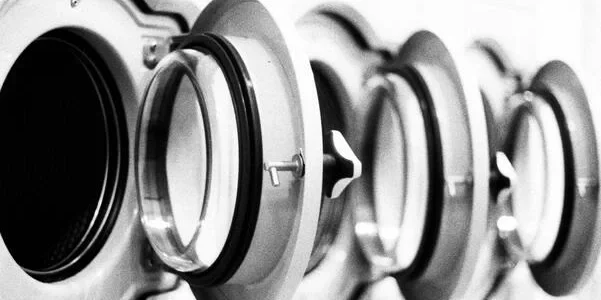Have you ever touched the sides of your freestanding freezer and wondered, “Why does it feel so warm?” You’re not alone—many homeowners are surprised (and even worried) when they notice heat on the exterior of their freezer. While this can be alarming, it’s often completely normal. However, there are times when it may signal a problem.
In this article, we’ll explain why your freezer might be hot on the outside, when to be concerned, and what maintenance tips can help keep your appliance running safely and efficiently.
Is it normal for a freezer to feel hot on the outside?
Yes—up to a point, it’s completely normal. Most modern freezers, especially freestanding models, are designed to release heat as part of the cooling process.
These appliances remove heat from inside the freezer to keep your food frozen. That heat has to go somewhere—and it often gets dispersed through condenser coils located along the sides or back of the freezer.
It’s also common for the area near the compressor (usually at the bottom rear) to feel warmer than other spots. This design is meant to prevent moisture buildup and improve efficiency.

Common reasons why a freezer gets hot on the outside
Normal condenser coil heat
Newer and energy-efficient freezers rely on condenser coils placed in the cabinet walls instead of external coils. This design choice means heat is more noticeable on the sides.
High ambient temperature
If your kitchen or storage area is hot—or if your freezer is in a garage or basement without air conditioning—the exterior may feel warmer. The appliance has to work harder to maintain low internal temperatures.
Continuous running
A freezer that’s brand new, has recently been restocked with a lot of groceries, or is cooling down after a power outage will run continuously for hours. During this time, the sides may feel hot as it works to reach the correct internal temperature.
Dust buildup on condenser coils
Over time, dust and debris can collect on the coils (especially in older freezers with rear or bottom coils), reducing their ability to release heat efficiently. This leads to hotter exterior surfaces.
Poor ventilation
A freestanding freezer needs adequate space around it—at least 2–3 inches from walls. Without enough airflow, heat gets trapped and the outer surfaces can overheat.
Malfunctioning fan or compressor
While less common, a failing fan or compressor can cause heat to build up and affect the freezer’s ability to cool properly. This is often accompanied by other symptoms like loud noises or poor interior cooling.

When should you be concerned?
While a warm side or back is usually fine, there are signs that something may be wrong:
- The freezer is hot outside and the inside temperature is rising, causing food to soften or thaw.
- You hear loud or unusual sounds such as buzzing, clicking, or humming.
- There’s a burning or plastic smell coming from the appliance.
- The unit is running non-stop without reaching its set temperature.
- The exterior surfaces are extremely hot—almost too hot to touch comfortably.
In these cases, it’s important to take action right away to prevent food spoilage or potential safety hazards.
Maintenance tips to prevent overheating
- Keep proper spacing: Leave at least 2–3 inches between the freezer and walls or other appliances for good airflow.
- Clean the condenser coils: Every 6 months (more frequently if you have pets), unplug the freezer and carefully vacuum or brush the coils to remove dust buildup.
- Avoid overloading: Overstuffing blocks internal air circulation and makes the compressor work harder.
- Check vents and fans: Make sure they’re not blocked by items or dust.
- Install in a ventilated area: Avoid placing the freezer in cramped closets, tight corners, or enclosed garages without proper airflow.
Conclusion
A freezer hot on the outside is often a normal part of its design, helping the appliance release heat and operate efficiently.
However, if you notice excessive heat, poor cooling performance, or strange smells and sounds, it may indicate a bigger problem that needs attention.
By following these maintenance tips and staying alert to warning signs, you can keep your freezer running smoothly and safely for years to come.
When in doubt, don’t hesitate to contact a certified technician for a professional inspection and peace of mind.




